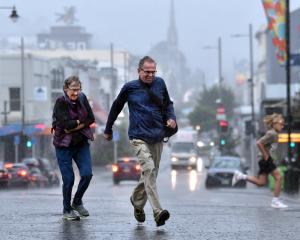A former Housing New Zealand tenant in Dunedin is being prosecuted after an investigation revealed they owned a $360,000 real estate portfolio while living in subsidised accommodation.
HNZ recently terminated five tenancies in Dunedin following the nationwide investigation.
"All of the dishonesty cases in Dunedin were as a result of the former tenants failing to declare their income, their assets or they had a partner living with them who had not been declared to Housing New Zealand," HNZ spokeswoman Marie Winfield said.
"All five former tenants voluntarily vacated their properties once the outcome of the investigations into their tenancy was presented to them.
"Of these five cases, one is currently before the courts. The tenant failed to declare their interest in a number of properties valued at $360,000. As a result of the corporation's investigation, their tenancy was terminated, a debt established and they are subject to criminal proceedings, which is still before the courts."
The person was one of 241 people whose tenancies were terminated throughout New Zealand for dishonesty in the past 12 months.
"Tenants who defraud Housing New Zealand can lose their tenancy and be prosecuted. If convicted, sentences range from community work to home detention and imprisonment," Ms Winfield said.
"When considering whether there is a need to prosecute, we take into account a number of factors including the strength of evidence, the likelihood of conviction, that the evidence establishes the commission of crime, the seriousness of the crime, the degree of pre-meditation, prevalence of the type of crime, the likely penalty or sentence, the impact on the customer's health, other customer impacts and whether or not the tenant had rectified the loss."
HNZ offers subsidised rental homes for people in desperate need of housing, who do not usually have any other options.
"Housing New Zealand is very pleased with the outcome of the investigations into dishonest tenants in Dunedin, and will continue to investigate tenancies where dishonesty is suspected," Ms Winfield said.
HNZ acting investigations officer Neil Adams said dishonest tenants were discovered in various ways, including tip-offs from the public and staff noticing changes in circumstances, such as a partner moving into a property.
HNZ introduced a new system for state house allocation last month, which will include a tenant review every three years, and waiting lists would also be prioritised, with only the very needy now being placed on the list, Mr Adams said.
Last week, 86 people were on the HNZ waiting list in Dunedin, of which eight were priority A (considered "at risk") and 38 priority B (considered "serious").













